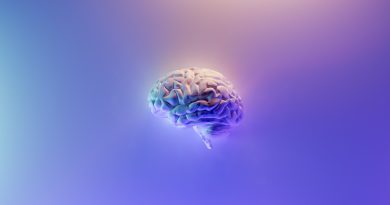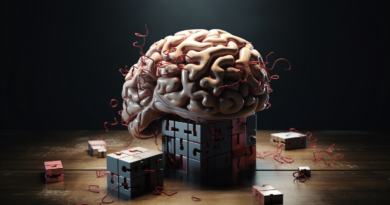Photo by Elisa Ventur on Unsplash
Você passa semanas estudando para uma prova importante. No grande dia, você espera nervosamente enquanto seu professor entrega as provas. Você está trabalhando, quando lhe pedem para definir a palavra “ataraxia”. Você sabe que já viu a palavra antes, mas sua mente fica em branco. O que acabou de acontecer? Elizabeth Cox detalha a complexa relação entre estresse e memória. (Fonte: TED.COM)
| Audio | |
|---|---|
Normal | Slow |
| English Transcript | Tradução |
| You spend weeks studying for an important test. | Você passa semanas estudando para uma prova importante. |
| On the big day, you wait nervously as your teacher hands it out. | No grande dia, você espera nervosamente enquanto seu professor a entrega. |
| You're working your way through, when you're asked to define "ataraxia". | Você está trabalhando, quando lhe pedem para definir "ataraxia". |
| You know you've seen it before, but your mind goes blank. | Você sabe que já viu isso antes, mas sua mente fica em branco. |
| What just happened? | O que acabou de acontecer? |
| The answer lies in the complex relationship between stress and memory. | A resposta está na complexa relação entre estresse e memória. |
| There are many types and degrees of stress and different kinds of memory, but we're going to focus on how short-term stress impacts your memory for facts. | Existem muitos tipos e graus de estresse e diferentes tipos de memória, mas vamos nos concentrar em como o estresse de curto prazo afeta sua memória para fatos. |
| To start, it helps to understand how this kind of memory works. | Para começar, ajuda entender como esse tipo de memória funciona. |
| Facts you read, hear, or study become memories through a process with three main steps. | Fatos que você lê, ouve ou estuda tornam-se memórias por meio de um processo com três etapas principais. |
| First comes acquisition: the moment you encounter a new piece of information. | Primeiro vem a aquisição: o momento em que você encontra uma nova informação. |
| Each sensory experience activates a unique set of brain areas. | Cada experiência sensorial ativa um conjunto único de áreas cerebrais. |
| In order to become lasting memories, these sensory experiences have to be consolidated by the hippocampus, influenced by the amygdala, which emphasizes experiences associated with strong emotions. | Para se tornarem memórias duradouras, essas experiências sensoriais precisam ser consolidadas pelo hipocampo, influenciado pela amígdala, que enfatiza experiências associadas a emoções fortes. |
| The hippocampus then encodes memories, probably by strengthening the synaptic connections stimulated during the original sensory experience. | O hipocampo então codifica memórias, provavelmente fortalecendo as conexões sinápticas estimuladas durante a experiência sensorial original. |
| Once a memory has been encoded, it can be remembered, or retrieved, later. | Uma vez que uma memória foi codificada, ela pode ser lembrada ou recuperada posteriormente. |
| Memories are stored all over the brain, and it's likely the prefrontal cortex that signals for their retrieval. | As memórias são armazenadas em todo o cérebro, e é provável que seja o córtex pré-frontal que sinaliza para sua recuperação. |
| So how does stress affect each of these stages? | Então, como o estresse afeta cada um desses estágios? |
| In the first two stages, moderate stress can actually help experiences enter your memory. | Nos dois primeiros estágios, o estresse moderado pode realmente ajudar as experiências a entrar em sua memória. |
| Your brain responds to stressful stimuli by releasing hormones known as corticosteroids, which activate a process of threat-detection and threat-response in the amygdala. | Seu cérebro responde a estímulos estressantes liberando hormônios conhecidos como corticosteróides, que ativam um processo de detecção e resposta à ameaça na amígdala. |
| The amygdala prompts your hippocampus to consolidate the stress-inducing experience into a memory. | A amígdala leva seu hipocampo a consolidar a experiência indutora de estresse em uma memória. |
| Meanwhile, the flood of corticosteroids from stress stimulates your hippocampus, also prompting memory consolidation. | Enquanto isso, a enxurrada de corticosteróides do estresse estimula o hipocampo, também estimulando a consolidação da memória. |
| But even though some stress can be helpful, extreme and chronic stress can have the opposite effect. | Mas mesmo que algum estresse possa ser útil, o estresse extremo e crônico pode ter o efeito oposto. |
| Researchers have tested this by injecting rats directly with stress hormones. | Os pesquisadores testaram isso injetando ratos diretamente com hormônios do estresse. |
| As they gradually increased the dose of corticosteroids, the rats' performance on memory tests increased at first, but dropped off at higher doses. | À medida que aumentaram gradualmente a dose de corticosteróides, o desempenho dos ratos nos testes de memória aumentou no início, mas caiu em doses mais altas. |
| In humans, we see a similar positive effect with moderate stress. | Em humanos, vemos um efeito positivo semelhante com estresse moderado. |
| But that only appears when the stress is related to the memory task - so while time pressure might help you memorize a list, having a friend scare you will not. | Mas isso só aparece quando o estresse está relacionado à tarefa de memória - então, embora a pressão do tempo possa ajudá-lo a memorizar uma lista, ser assustado amigavelmente não vai te ajudar. |
| And the weeks, months, or even years of sustained corticosteroids that result from chronic stress can damage the hippocampus and decrease your ability to form new memories. | E as semanas, meses ou até anos de corticosteróides sustentados que resultam do estresse crônico podem danificar o hipocampo e diminuir sua capacidade de formar novas memórias. |
| It would be nice if some stress also helped us remember facts, but unfortunately, the opposite is true. | Seria bom se algum estresse também nos ajudasse a lembrar dos fatos, mas infelizmente o oposto é verdadeiro. |
| The act of remembering relies on the prefrontal cortex, which governs thought, attention, and reasoning. | O ato de lembrar depende do córtex pré-frontal, que governa o pensamento, a atenção e o raciocínio. |
| When corticosteroids stimulate the amygdala, the amygdala inhibits, or lessens the activity of, the prefrontal cortex. | Quando os corticosteróides estimulam a amígdala, a amígdala inibe ou diminui a atividade do córtex pré-frontal. |
| The reason for this inhibition is so the fight/flight/freeze response can overrule slower, more reasoned thought in a dangerous situation. | A razão para essa inibição é que a resposta de luta/fuga/congelamento pode anular o pensamento mais lento e racional em uma situação perigosa. |
| But that can also have the unfortunate effect of making your mind go blank during a test. | Mas isso também pode ter o efeito infeliz de deixar sua mente em branco durante um teste. |
| And then the act of trying to remember can itself be a stressor, leading to a vicious cycle of more corticosteroid release and an even smaller chance of remembering. | E então o ato de tentar lembrar pode ser um estressor, levando a um ciclo vicioso de liberação de mais corticosteróides e uma chance ainda menor de lembrar. |
| So what can you do to turn stress to your advantage and stay calm and collected when it matters the most? | Então, o que você pode fazer para transformar o estresse a seu favor e ficar calmo e sereno quando é mais importante? |
| First, if you know a stressful situation like a test is coming, try preparing in conditions similar to the stressful environment. | Primeiro, se você sabe que uma situação estressante como uma prova está chegando, tente se preparar em condições semelhantes ao ambiente estressante. |
| Novelty can be a stressor. | A novidade pode ser um estressor. |
| Completing practice questions under time pressure, or seated at a desk rather than on a couch, can make your stress response to these circumstances less sensitive during the test itself. | Completar questões práticas sob pressão de tempo, ou sentado em uma mesa em vez de em um sofá, pode tornar sua resposta ao estresse a essas circunstâncias menos sensível durante o teste em si. |
| Exercise is another useful tool. | O exercício é outra ferramenta útil. |
| Increasing your heart and breathing rate is linked to chemical changes in your brain that help reduce anxiety and increase your sense of well-being. | Aumentar a frequência cardíaca e respiratória está ligado a mudanças químicas no cérebro que ajudam a reduzir a ansiedade e aumentar a sensação de bem-estar. |
| Regular exercise is also widely thought to improve sleeping patterns, which comes in handy the night before a test. | Acredita-se também que o exercício regular melhora os padrões de sono, o que é útil na noite anterior a um teste. |
| And on the actual test day, try taking deep breaths to counteract your body's flight/fight/freeze response. | E no dia do teste real, tente respirar fundo para neutralizar a resposta de fuga/luta/congelamento do seu corpo. |
| Deep breathing exercises have shown measurable reduction in test anxiety in groups ranging from third graders to nursing students. | Exercícios de respiração profunda mostraram redução mensurável na ansiedade do teste em grupos que variam de alunos da terceira série a estudantes de enfermagem. |
| So the next time you find your mind going blank at a critical moment, take a few deep breaths until you remember ataraxia: a state of calmness, free from anxiety. | Então, da próxima vez que você perceber que sua mente está em branco em um momento crítico, respire fundo algumas vezes até se lembrar da ataraxia: um estado de calma, livre de ansiedade. |
Contagem de palavras
A tabela abaixo exibe as palavras encontradas neste vídeo, bem como o número de vezes em que aparecem.
Veja também: Para que serve esta tabela?
| Freq. | Palavra | Freq. | Palavra | Freq. | Palavra |
|---|---|---|---|---|---|
| 40 | the | 22 | a | 20 | to |
| 18 | of | 17 | your | 16 | stress |
| 16 | and | 14 | you | 11 | in |
| 11 | can | 10 | memory | 8 | is |
| 7 | test | 7 | it | 7 | but |
| 6 | on | 6 | have | 6 | be |
| 5 | that | 5 | so | 5 | or |
| 5 | memories | 5 | hippocampus | 5 | corticosteroids |
| 5 | by | 5 | are | 5 | amygdala |
| 4 | with | 4 | which | 4 | when |
| 4 | response | 4 | from | 4 | for |
| 4 | first | 4 | brain | 4 | at |
| 4 | also | 3 | time | 3 | thought |
| 3 | this | 3 | these | 3 | stressful |
| 3 | sensory | 3 | remember | 3 | prefrontal |
| 3 | mind | 3 | how | 3 | help |
| 3 | facts | 3 | experiences | 3 | experience |
| 3 | even | 3 | effect | 3 | during |
| 3 | deep | 3 | cortex | 3 | blank |
| 3 | as | 3 | anxiety | 2 | what |
| 2 | weeks | 2 | we | 2 | try |
| 2 | through | 2 | threat | 2 | then |
| 2 | stressor | 2 | stages | 2 | some |
| 2 | situation | 2 | similar | 2 | remembering |
| 2 | process | 2 | pressure | 2 | opposite |
| 2 | new | 2 | more | 2 | moment |
| 2 | moderate | 2 | know | 2 | itself |
| 2 | increased | 2 | if | 2 | hormones |
| 2 | going | 2 | freeze | 2 | flight |
| 2 | fight | 2 | exercise | 2 | each |
| 2 | day | 2 | comes | 2 | chronic |
| 2 | breaths | 2 | breathing | 2 | before |
| 2 | become | 2 | ataraxia | 2 | an |
| 2 | act | 1 | years | 1 | would |
| 1 | works | 1 | working | 1 | will |
| 1 | widely | 1 | while | 1 | well |
| 1 | way | 1 | wait | 1 | vicious |
| 1 | useful | 1 | us | 1 | until |
| 1 | unique | 1 | unfortunately | 1 | unfortunate |
| 1 | understand | 1 | under | 1 | types |
| 1 | two | 1 | turn | 1 | trying |
| 1 | true | 1 | tool | 1 | three |
| 1 | though | 1 | third | 1 | they |
| 1 | there | 1 | their | 1 | than |
| 1 | tests | 1 | tested | 1 | term |
| 1 | teacher | 1 | task | 1 | taking |
| 1 | take | 1 | synaptic | 1 | sustained |
| 1 | studying | 1 | study | 1 | students |
| 1 | strong | 1 | strengthening | 1 | stored |
| 1 | stimuli | 1 | stimulates | 1 | stimulated |
| 1 | stimulate | 1 | steps | 1 | stay |
| 1 | state | 1 | start | 1 | spend |
| 1 | smaller | 1 | slower | 1 | sleeping |
| 1 | signals | 1 | shown | 1 | short |
| 1 | set | 1 | sensitive | 1 | sense |
| 1 | seen | 1 | see | 1 | seated |
| 1 | scare | 1 | retrieved | 1 | retrieval |
| 1 | result | 1 | responds | 1 | researchers |
| 1 | remembered | 1 | relies | 1 | releasing |
| 1 | release | 1 | relationship | 1 | related |
| 1 | regular | 1 | reduction | 1 | reduce |
| 1 | reasoning | 1 | reasoned | 1 | reason |
| 1 | read | 1 | rats' | 1 | rats |
| 1 | rather | 1 | rate | 1 | ranging |
| 1 | questions | 1 | prompts | 1 | prompting |
| 1 | probably | 1 | preparing | 1 | practice |
| 1 | positive | 1 | piece | 1 | performance |
| 1 | patterns | 1 | overrule | 1 | over |
| 1 | out | 1 | original | 1 | order |
| 1 | only | 1 | once | 1 | off |
| 1 | nursing | 1 | novelty | 1 | not |
| 1 | night | 1 | nice | 1 | next |
| 1 | nervously | 1 | most | 1 | months |
| 1 | might | 1 | memorize | 1 | measurable |
| 1 | meanwhile | 1 | matters | 1 | many |
| 1 | making | 1 | make | 1 | main |
| 1 | list | 1 | linked | 1 | likely |
| 1 | like | 1 | lies | 1 | lessens |
| 1 | less | 1 | leading | 1 | later |
| 1 | lasting | 1 | known | 1 | kinds |
| 1 | kind | 1 | just | 1 | into |
| 1 | injecting | 1 | inhibits | 1 | inhibition |
| 1 | information | 1 | influenced | 1 | inducing |
| 1 | increasing | 1 | increase | 1 | improve |
| 1 | important | 1 | impacts | 1 | humans |
| 1 | higher | 1 | helps | 1 | helpful |
| 1 | helped | 1 | heart | 1 | hear |
| 1 | having | 1 | has | 1 | happened |
| 1 | handy | 1 | hands | 1 | groups |
| 1 | gradually | 1 | graders | 1 | governs |
| 1 | goes | 1 | go | 1 | friend |
| 1 | free | 1 | form | 1 | focus |
| 1 | flood | 1 | find | 1 | few |
| 1 | extreme | 1 | exercises | 1 | environment |
| 1 | enter | 1 | encounter | 1 | encodes |
| 1 | encoded | 1 | emphasizes | 1 | emotions |
| 1 | dropped | 1 | doses | 1 | dose |
| 1 | does | 1 | do | 1 | directly |
| 1 | different | 1 | detection | 1 | desk |
| 1 | degrees | 1 | define | 1 | decrease |
| 1 | dangerous | 1 | damage | 1 | cycle |
| 1 | critical | 1 | counteract | 1 | couch |
| 1 | corticosteroid | 1 | consolidation | 1 | consolidated |
| 1 | consolidate | 1 | connections | 1 | conditions |
| 1 | complex | 1 | completing | 1 | coming |
| 1 | collected | 1 | circumstances | 1 | chemical |
| 1 | changes | 1 | chance | 1 | calmness |
| 1 | calm | 1 | body's | 1 | big |
| 1 | between | 1 | being | 1 | been |
| 1 | attention | 1 | associated | 1 | asked |
| 1 | areas | 1 | appears | 1 | answer |
| 1 | another | 1 | all | 1 | affect |
| 1 | advantage | 1 | actually | 1 | actual |
| 1 | activity | 1 | activates | 1 | activate |
| 1 | acquisition | 1 | ability |










